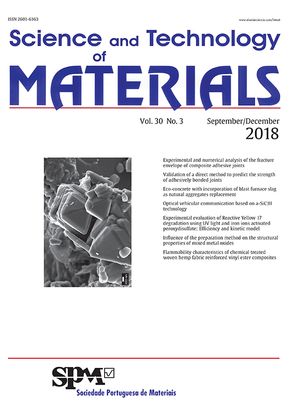The design of a self-contained breathing apparatus (SCBA), which is an extremely important device for firefighting on board of ships, covers not only in-service loadings, but also a proper selection of materials, manufacturing processes, as well as the specification of other construction details, such as hydrostatic test parameters, among others.
The work developed and presented in this manuscript sought to verify the feasibility and the advantages of using composite materials in a SCBA subjected to high internal pressure (300bar, 30MPa), instead of other metallic material currently in use. Hence, a carbon fibre reinforced polymer (CFRP) and the filament winding technique were considered in the SCBA redesign. Analytical formulas, as well as engineering standards and advanced finite element analysis (FEM) were used to analyse two types of SCBA commonly used on board of ships.
Five valid axial tensile tests were performed in samples of CFRP using a DARTEC 100kN servo hydraulic machine according with standard ASTM D3039/D 3039M (2002) in order to determine the mechanical properties of the material, and a displacement transducer or strain gages were used to determine strains induced in the composite during experimental axial tensile tests, Then, several FE numerical simulations were carried out in order to verify the compliance of a redesigned SCBA with the functional requirements, and the main manufacturing parameters were also determined. Furthermore, experimental internal pressure tests were carried out in a pressure vessel similar to the redesigned SCBA. The results of FE simulations and experimental tests were compared and conclusions could be drawn.





